
Marine Drugs
Scope & Guideline
Advancing Drug Discovery from Ocean Treasures
Introduction
Aims and Scopes
- Marine Natural Products:
Focuses on the discovery and characterization of natural products derived from marine organisms, including algae, sponges, and microorganisms. This area emphasizes the pharmacological potential of these compounds against various diseases. - Biotechnology and Biomedical Applications:
Explores the biotechnological applications of marine-derived compounds, including their use in drug delivery systems, tissue engineering, and regenerative medicine. - Environmental and Ecological Studies:
Investigates the ecological roles of marine organisms and their metabolites, including studies on bioaccumulation, environmental impacts, and marine biodiversity. - Pharmacological Studies:
Includes research on the pharmacodynamics and pharmacokinetics of marine compounds, assessing their therapeutic effects, mechanisms of action, and potential side effects. - Nutraceuticals and Functional Foods:
Examines the health benefits of marine-derived dietary supplements and functional foods, focusing on their roles in disease prevention and health promotion.
Trending and Emerging
- Metabolomics and Genomics:
There is an increasing focus on metabolomics and genomics in the study of marine organisms, which allows for a deeper understanding of biochemical pathways and the discovery of new bioactive compounds. - Sustainable and Eco-Friendly Extraction Methods:
Research is trending towards the development of sustainable and eco-friendly extraction methods for marine compounds, aligning with global sustainability goals. - Multi-Omics Approaches:
The application of multi-omics approaches (genomics, proteomics, metabolomics) is gaining traction, enabling comprehensive studies of marine organisms and their potential therapeutic applications. - Marine-Derived Biomaterials:
There is a growing interest in marine-derived biomaterials for use in tissue engineering and regenerative medicine, highlighting their unique properties and biocompatibility. - Functional Foods and Nutraceuticals:
The exploration of marine ingredients as functional foods and nutraceuticals is on the rise, with a focus on their health benefits and potential for disease management.
Declining or Waning
- Traditional Medicinal Uses:
Research on traditional medicinal uses of marine organisms has seen a decline, possibly due to a shift towards more innovative and biotechnologically advanced applications. - Chemical Synthesis of Marine Compounds:
There is a noticeable decrease in studies focused solely on the chemical synthesis of marine-derived compounds, as more emphasis is placed on bioactivity and natural extraction methods. - Conventional Pharmacological Research:
Research that primarily focuses on conventional pharmacological testing without integrating modern techniques such as genomics or metabolomics is becoming less common.
Similar Journals
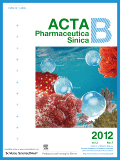
Acta Pharmaceutica Sinica B
Unlocking New Horizons in Pharmacology and ToxicologyActa Pharmaceutica Sinica B is a prestigious open access journal that has been setting the standard in the field of pharmacology, toxicology, and pharmaceutics since its establishment in 2011. Published by the Institute of Materia Medica, Chinese Academy of Medical Sciences, the journal serves as a vital platform for researchers, professionals, and students seeking to disseminate innovative findings in drug development, pharmaceutical sciences, and therapeutic applications. With an impressive impact factor reflecting its high academic quality, Acta Pharmaceutica Sinica B has achieved Q1 status in the category of Pharmacology, Toxicology and Pharmaceutics as of 2023, ranking #1 out of 80 journals in General Pharmacology. This journal not only focuses on the latest advancements in drug research and formulation but also emphasizes interdisciplinary approaches, fostering collaborations that span various scientific domains. The accessible nature of the journal, combined with its rigorous peer-review process, ensures that crucial insights and breakthroughs reach a global audience swiftly and effectively. For those looking to stay at the forefront of pharmaceutical research, Acta Pharmaceutica Sinica B is an indispensable resource.
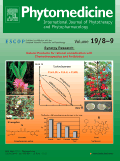
PHYTOMEDICINE
Innovating Health Solutions with Plant PowerPHYTOMEDICINE is a premier journal published by Elsevier GmbH, based in Germany, that serves as a central hub for the dissemination of innovative research in the fields of Complementary and Alternative Medicine, Drug Discovery, Molecular Medicine, Pharmaceutical Science, and Pharmacology. Established in 1994, this multidisciplinary journal has rapidly ascended to a Q1 ranking across these categories in 2023, highlighting its significance and impact within the scientific community. With its current Scopus rankings placing it in the top tiers—such as #3 in Complementary and Alternative Medicine and #17 in Pharmaceutical Science—PHYTOMEDICINE is recognized for its commitment to publishing high-quality, peer-reviewed articles that advance our understanding of phytotherapeutics and their applications. Researchers and professionals in the field benefit from its rigorous standards and comprehensive coverage, while students gain access to essential findings that shape contemporary practices in medicine and pharmacology. Its continued focus on critical advancements ensures that PHYTOMEDICINE remains a vital resource for anyone involved in the exploration of medicinal plants and their potential health benefits.

Indian Journal of Geo-Marine Sciences
Charting New Territories in Oceanographic StudiesThe Indian Journal of Geo-Marine Sciences, published by the NATIONAL INSTITUTE OF SCIENCE COMMUNICATION & INFORMATICS (NISCAIR), serves as a vital platform dedicated to the dissemination and advancement of knowledge in the field of marine and geosciences. As an open-access journal, it allows for improved visibility and accessibility of research findings to a global audience, enabling researchers, professionals, and students to share insights into oceanography and related disciplines. With a publication history spanning from 2007 to 2010 and continuing from 2012 to 2024, it has established itself within the academic community as a reliable source of innovative research, despite being classified in Q4 of Oceanography and holding a Scopus rank that places it in the 27th percentile. This journal is particularly relevant for those investigating marine ecosystems, geological oceanography, and their interconnections, thus playing an essential role in fostering understanding and communication within this important area of scientific inquiry.

Russian Journal of Marine Biology
Unveiling Insights from the Ocean's DepthsRussian Journal of Marine Biology, published by MAIK NAUKA/INTERPERIODICA/SPRINGER, serves as a vital platform for disseminating research in the fields of Aquatic Science and Oceanography. With an ISSN of 1063-0740 and E-ISSN 1608-3377, this journal has been in circulation since 1996 and continues to contribute valuable insights across its specified domains. Although it currently holds a Q4 quartile ranking in both fields as of 2023, the journal's impact is underscored by its focused niche in marine biology, attracting contributions from a diverse global research community. Researchers and professionals will find its articles essential for advancing their knowledge and understanding of marine ecosystems and biological processes. While not currently an open access journal, the Russian Journal of Marine Biology remains committed to enhancing the scientific discourse aimed at fostering sustainable marine environments.

Journal of Ocean University of China
Elevating Marine Studies through Quality ResearchThe Journal of Ocean University of China, ISSN 1672-5182, is a premier academic journal dedicated to advancing the fields of Ocean Engineering and Oceanography. Published by the esteemed Ocean University of China, the journal serves as a vital platform for researchers, professionals, and students to disseminate groundbreaking findings and foster collaboration in marine science and engineering. With a commitment to quality, the journal currently holds a Q3 ranking in both Ocean Engineering and Oceanography as of 2023, indicating its significant contributions within the scientific community. The journal's scope encompasses a wide range of topics including marine technology, ecological studies, and coastal management, all aimed at enhancing the understanding and utilization of oceanic resources. Although currently not Open Access, it continues to attract submissions from renowned scholars, ensuring a diverse and innovative range of research. By providing access to cutting-edge research and practical insights, the Journal of Ocean University of China plays a critical role in shaping the future of ocean sciences and engineering.
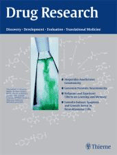
Drug Research
Pioneering Insights for Future TherapiesDrug Research, published by GEORG THIEME VERLAG KG, is a pivotal journal housed in the vibrant realm of pharmacology and drug discovery. With a commitment to advancing the understanding of medicinal substances, this journal serves as an essential resource for researchers, professionals, and students dedicated to the field. The journal boasts an ISSN of 2194-9379 and an E-ISSN of 2194-9387, reflecting its dual commitment to print and digital accessibility. Despite its status as a Q3 journal in both Drug Discovery and Miscellaneous Medicine categories as of 2023, it continues to offer valuable insights with a focus on the latest innovations, methodologies, and findings in drug research. Based in Germany, Drug Research promotes scholarly communication and collaboration within the scientific community, ensuring that its contributions remain impactful in shaping future therapeutic discoveries. The journal is indexed in relevant databases, enhancing its visibility and reach, thus fostering a robust academic dialogue.
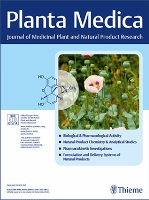
PLANTA MEDICA
Charting New Territories in Herbal ResearchPLANTA MEDICA is a premier journal dedicated to advancing the field of medicinal plant research, published by Georg Thieme Verlag KG in Germany. With an ISSN of 0032-0943 and an E-ISSN of 1439-0221, this journal has been a cornerstone of scholarly communication since its inception in 1961. Recognized for its rigorous peer-review process, PLANTA MEDICA holds a notable reputation in the academic landscape, featuring a 2023 Q2 ranking in categories such as Analytical Chemistry and Pharmaceutical Science, along with respectable Q3 rankings in Drug Discovery and Molecular Medicine. The journal focuses on the synthesis, pharmacological, and biochemical assessment of phytochemicals, making it an essential resource for researchers, professionals, and students alike who are engaged in the exploration of complementary and alternative medicine. Although it does not offer open access options, its content is instrumental in identifying new therapeutic agents derived from plants, thereby underscoring its importance in drug discovery and holistic health research.
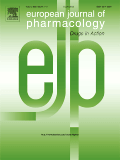
European Journal of Pharmacology
Advancing drug discovery through innovative research.The European Journal of Pharmacology, a prestigious publication by Elsevier, serves as a vital resource in the field of pharmacology, offering rich insights into drug development and therapeutic applications. Since its inception in 1967, this journal has evolved to encompass groundbreaking research, including pharmacokinetics, toxicology, and innovative pharmacological methodologies, making it an essential platform for researchers and professionals alike. With an impressive impact factor that places it in the Q1 category of pharmacological journals and a Scopus ranking of #49 out of 313, the journal is recognized in the 84th percentile within its category, solidifying its significance in the academic community. Although the journal is not open access, it continues to attract contributions from leading scientists worldwide, ensuring that cutting-edge findings are disseminated effectively. The European Journal of Pharmacology not only highlights advancements in drug discovery and clinical applications but also promotes interdisciplinary collaboration, ultimately contributing to the progress of healthcare globally.
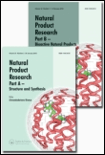
NATURAL PRODUCT RESEARCH
Pioneering Discoveries in Plant and Organic ChemistryNATURAL PRODUCT RESEARCH is a distinguished journal published by Taylor & Francis Ltd, dedicated to advancing the field of natural product science through the dissemination of high-quality research. Established in 2003, this journal serves as a pivotal platform for scholars in Analytical Chemistry, Biochemistry, Organic Chemistry, and Plant Science, boasting an impressive categorization including Q2 in Plant Science and Q3 in the other disciplines for 2023. With a current Scopus ranking that highlights its significance within various scientific communities, NATURAL PRODUCT RESEARCH reflects the complexities and innovations associated with natural compounds and their applications. Researchers, professionals, and students will find valuable insights and breakthroughs that contribute to the understanding of bioactive compounds and their roles in health and environmental sustainability. Access options are available, ensuring that the latest findings are accessible to a global audience. As this journal continues to publish until 2024, it remains an essential resource for those at the forefront of natural product research.

THALASSAS
Fostering Innovation in Marine ResearchTHALASSAS is a prominent academic journal specializing in the fields of Aquatic Science and Oceanography, published by Springer International Publishing AG. Established in 2005 and running through 2024, this journal serves as a vital platform for sharing groundbreaking research and innovative findings related to the marine environment and its ecosystems. With an ISSN of 0212-5919 and an E-ISSN of 2366-1674, THALASSAS is indexed in Scopus and currently holds a Q3 classification in both Aquatic Science and Oceanography for 2023, reflecting its relevance and contribution to these scientific disciplines. Although it does not follow an Open Access model, THALASSAS offers valuable insights for researchers, professionals, and students interested in sustainable ocean management and aquatic biodiversity. Its rigorous peer-review process ensures that published articles meet the highest standards of academic quality, fostering a deeper understanding of marine sciences and addressing critical issues facing aquatic systems today.